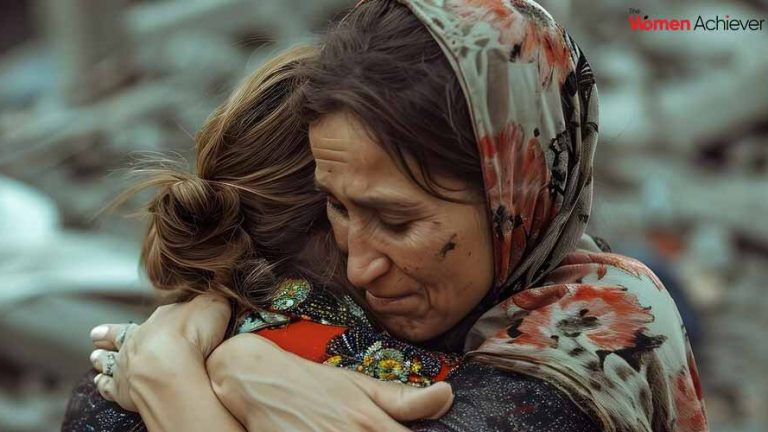Here’s about Women in Conflict Zones: The Unseen Toll of War in Ukraine, Gaza, and Beyond
In times of conflict, women carry a largely invisible burden. In Gaza and Ukraine, and other areas of conflict throughout the world, women are subjected to unprecedented and seemingly unrepairable hardships-ranging from displacement and rape to the psychological destruction of being deprived of homes, families, and sources of livelihood. Because men are often depicted as the first victims or warriors, the invisible burdens women carry send another message-one of resilience, courage, and fortitude.
Surviving in the midst of chaos: The Situation of Women in Ukraine
Millions of children and women have been displaced since the Russian invasion of Ukraine, and most of them have crossed the borders into neighbouring countries in search of refuge. Women who remain confined in their homes are bombarded round the clock with shortages of food and an outright denial of access to basic healthcare. Pregnant women are especially vulnerable, delivering their babies in unsanitary conditions in the absence of any form of medical care.
Moreover, accounts of rape by the occupying forces against women in Ukraine indicate the atrocities committed through the use of rape as a weapon of war. Human rights groups have also reported a number of instances where women and girls were used, further cementing the sad reality that women’s bodies are battlefields when war strikes.
Gaza: Women Caught Between Survival and Desperation
Even in Gaza, the situation is no less alarming. Women are besieged with limited access to food, water, and health services. During war, they have to fight for their families while coping with a failing health system and experiencing perpetual destruction. Malnutrition and poor health elevate the risk among pregnant women and lactating women, resulting in miscarriage and infant death.
The emotional burden on women in Gaza is too great. They are all experiencing extreme post-traumatic stress disorder (PTSD) with fear of losing their children, homes, and communities constantly. The blockade and incessant bombings do not give space for women and children to feel secure, adding to their hopelessness.
Beyond Borders: Women in Other Conflict Zones
Throughout Syria, Yemen, Afghanistan, and Sudan, women are the same. They are not only displaced but also forced to become the primary care-givers, trying to keep families together amidst destruction. Schools, clinics, and economic opportunities disappear, trapping generations of women in poverty and violence.
In addition, their autonomy and dignity are lost since they are subjected to labour or forced into early marriage. In no robust protection system, their suffering is intensified, and they are exposed to further abuse.
The Psychological and Societal Impact
The mental impact on women in war areas is enormous. Depression, anxiety, and PTSD are prevalent, yet mental healthcare services are unavailable. The lasting consequences cut across individuals-ruining families and shattering communities. Women’s contributions to rebuilding society after conflicts are undermined, sending them to live in poverty and discrimination.
Resilience and Advocacy: Women as Agents of Change
In spite of all these humungous problems, women in the war zones have proved to be redoubtable change makers. Women’s groups offer critical relief and psychosocial assistance to resettled families in Ukraine. In Gaza, they are guardians of social resilience and champions of peacebuilding. Women activist, journalist, and peaceworker women across the world raise voices for the marginalized and hold regimes accountable for misdeeds.
The Way Ahead: Providing Protection to Women in Conflict Zones
- Strengthening Legal Protections: Passing international laws that protect women in war zones is essential.
- Reconfiguring Humanitarian Aid: Improving gender-sensitive aid ensures the specific needs of women are addressed during crises.
- Investment in Psychological Care: Offering trauma counseling and psychological support can enable women to recover and rebuild their lives.
Conclusion: The cost of war on women cannot be counted and must be confronted now by the world community. Empowering and safeguarding women in countries ravaged by war is not only a moral obligation-it is critical to achieving sustainable peace and reconstructing shattered societies. Without confronting the gendered effects of war, justice and peace will be unattainable.






Add comment